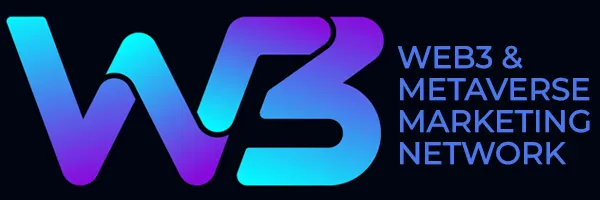By Blossom Onyeukwu
Let’s start by understanding what Web3 and Metaverse is all about
Web3 and the metaverse are two emerging trends that are significantly impacting the world of marketing and advertising. These new technologies are creating a wealth of new job opportunities, as companies seek to capitalize on the potential of these platforms to engage with consumers in innovative and immersive ways.
Understanding Web3 and the Metaverse
Web3 refers to the next generation of the internet, which is based on blockchain technology. It promises to decentralize the web, offering greater security and privacy for users, as well as new ways of monetizing digital content. This has significant implications for marketing, as it means that traditional advertising models may be disrupted, and new methods of reaching consumers will need to be developed.
The metaverse, on the other hand, is a collective virtual shared space, created by the convergence of virtually enhanced physical reality and physically persistent virtual reality. This term is typically used to describe a collective virtual shared space. In the metaverse, users can interact with each other and digital objects, creating an entirely new realm for marketing and advertising.
Evolution of Web3 and Metaverse Industries
Growth of blockchain technology:
- The global blockchain technology market size was valued at $3.67 billion in 2020 and is expected to reach $39.7 billion by 2025, with a compound annual growth rate (CAGR) of 67.3% from 2021 to 2025.
- The number of new blockchain startups has been increasing steadily, with 1,832 new blockchain startups founded worldwide in 2020, a 14% increase from the previous year.
- The number of blockchain wallet users has grown from approximately 6 million in 2013 to over 68 million in 2021.
Growth of NFTs
- The total sales volume of NFTs reached $2.5 billion in the first half of 2021, compared to $13.7 million in the first half of 2020, marking a staggering growth rate.
- The number of NFT sales has increased exponentially, with over 10.7 million NFT sales recorded in the first half of 2021, compared to 71,000 in the first half of 2020.
- The NFT market is expected to continue growing, with the NFT market size projected to reach $27.7 billion by 2027, growing at a CAGR of 67.4% from 2021 to 2027.
Growth of virtual environments
- The global virtual reality (VR) market size was valued at $7.3 billion in 2020 and is expected to reach $53.6 billion by 2026, with a CAGR of 32.6% from 2021 to 2026.
- The number of VR headsets sold worldwide is projected to grow from 6.4 million units in 2020 to 45.7 million units in 2026.
- The demand for virtual environments has expanded beyond gaming, with industries such as healthcare, education, and retail adopting VR technology for various applications, further driving its growth.
How has this growth influenced the marketing structure?
The growth of blockchain technology, NFTs, and virtual environments has significantly influenced the marketing structure in several ways:
Enhanced Trust and Transparency
Blockchain technology has the potential to enhance trust and transparency in marketing by providing a secure and immutable ledger for recording transactions. This can help in building trust with consumers, particularly in industries such as e-commerce and supply chain management.
New Revenue Streams
NFTs have introduced new opportunities for marketers to create and sell digital assets, such as virtual artwork, collectibles, and virtual real estate. This has opened up new revenue streams and monetization models for content creators and brands.
Personalized and Immersive Experiences
Virtual environments and VR technology provide marketers with the ability to create immersive and interactive experiences for consumers. This allows for more engaging and personalized marketing campaigns, particularly in industries such as retail, entertainment, and tourism.
Overall, the growth of blockchain technology, NFTs, and virtual environments is reshaping the marketing structure by providing new opportunities for revenue generation, customer engagement, and innovative marketing strategies. Marketers who adapt to these emerging technologies can gain a competitive edge and better connect with their target audiences.
Emerging roles in the Web3 and Metaverse marketing sector
As companies seek to develop their presence in the web3 and metaverse spaces, a number of new jobs are emerging in the marketing and advertising sector. Some of these positions include:
- Metaverse Marketing Manager: This role involves creating and executing marketing strategies within the metaverse, including advertising, promotions, and brand activations. The manager will need to have a deep understanding of virtual worlds and be able to create immersive experiences that resonate with users.
- Web3 Content Creator: With the rise of decentralized content platforms, companies are seeking individuals who can create compelling and engaging content that resonates with web3 audiences. This role may involve creating written, visual, or interactive content that can be monetized through blockchain technology.
- NFT Marketing Specialist: Non-fungible tokens (NFTs) are becoming an increasingly popular way for brands to engage with their audience in the web3 space. NFT marketing specialists are responsible for creating and selling digital assets that can be used as part of a brand’s marketing strategy.
- Blockchain Analyst: As companies look to integrate blockchain technology into their marketing efforts, they are seeking individuals who can analyze the potential impact of blockchain on their business and develop strategies to leverage this technology effectively.
- Virtual Reality (VR) Marketing Manager: With the growth of the metaverse, companies are seeking individuals who can create marketing strategies that utilize virtual reality technology to engage with consumers in new and innovative ways.
These and many more are examples of new job opportunities that are emerging in the web3 and metaverse marketing space. As these technologies continue to evolve, it is likely that many more roles will be created to support the growing demand for marketing and advertising in these areas. With the right skills and experience, individuals in these roles have the potential to shape the future of marketing and advertising in the web3 and metaverse spaces and also contribute significantly to the growth of these spaces.
To excel in the web3 and metaverse marketing space, there are some necessary skill set to acquire, to make your work easier and also produce better results. Some of them are;
- Understanding of Blockchain Technology: Marketers need to have a basic understanding of blockchain technology, including how it works, its applications, and its impact on various industries. This knowledge will help in developing marketing strategies that leverage blockchain and cater to the needs of the web3 and metaverse environments.
- NFT Knowledge: Non-fungible tokens (NFTs) are a key aspect of the web3 and metaverse industry. Marketers should have a good understanding of what NFTs are, how they are created and traded, and how they can be used in marketing campaigns to create unique and limited-edition digital assets.
- Virtual Environment Expertise: Marketers need to be familiar with virtual environments and virtual reality (VR) platforms. Understanding how these environments work, the user behavior within them, and the potential for marketing activities is crucial for developing effective strategies in the metaverse.
- Data Analysis and Interpretation: As with traditional marketing, the ability to collect, interpret, and analyze data is essential for success in the web3 and metaverse marketing industry. Marketers should be skilled in using data analytics tools and interpreting the data to make informed decisions about marketing strategies.
- Creativity and Innovation: In the web3 and metaverse industry, there is a need for creativity and innovation to stand out in a rapidly evolving and competitive landscape. Marketers must be able to think outside the box and develop unique campaigns that resonate with the virtual audience.
- Tech-Savviness: Marketers need to be tech-savvy and adaptable to new technologies and platforms. This includes being comfortable with virtual reality technologies, blockchain applications, and new digital tools that are relevant to the web3 and metaverse marketing industry.
- Community Engagement Skills: In the web3 and metaverse environments, community engagement plays a significant role. Marketers should possess skills in building and nurturing online communities, fostering interactions, and understanding the dynamics of virtual communities to drive marketing initiatives.
- Legal and Regulatory Awareness: With the emergence of new technologies and digital assets, marketers need to be aware of the legal and regulatory frameworks governing web3 and metaverse marketing. This includes understanding intellectual property rights, NFT regulations, and data privacy laws in virtual environments.
In summary, the web3 and metaverse marketing industry requires a unique set of skills that blend traditional marketing expertise with an understanding of emerging technologies and virtual environments. Marketers who possess these skills will be well-prepared to navigate and succeed in the evolving digital landscape.
A brief case study of how the popular shoe brand “Nike” organized a successful marketing campaign in the web3 and metaverse space to promote their brand and give it more exposure in this space.
One of the most notable examples of successful marketing campaigns and strategies in the web3 and metaverse marketing space is the collaboration between Nike and the virtual world Decentraland. In 2019, Nike hosted a virtual treasure hunt in Decentraland to promote the release of their new Air Max sneaker collection.
The campaign involved the creation of a virtual Nike Air Max-themed space within Decentraland, where users could explore and participate in a treasure hunt to find and collect limited-edition virtual sneakers. Nike also hosted virtual events and activities within the Decentraland space, including DJ sets, live music performances, and virtual art installations.
This innovative marketing strategy effectively leveraged the immersive and interactive nature of the metaverse to connect with a young and tech-savvy audience. By tapping into the virtual world, Nike generated significant buzz and engagement around their brand and products, reaching a global audience of virtual enthusiasts, sneaker collectors, and tech-forward consumers.
Challenges and Opportunities
Challenges in Web3 and Metaverse Marketing:
1. Technical Complexity
Web3 and metaverse marketing require a good understanding of blockchain technology, decentralized platforms, NFTs, and virtual environments, posing a challenge for marketers who are not familiar with these concepts.
2. Lack of Regulation: The regulatory landscape around web3 and metaverse marketing is still evolving, presenting legal and compliance challenges for brands navigating decentralized spaces and virtual economies.
3. Audience Fragmentation: With various decentralized platforms and virtual worlds, reaching and engaging a fragmented audience across different metaverse environments can be challenging, requiring tailored strategies for each platform.
4. Privacy and Security Concerns: Data privacy and security risks are compounded in decentralized spaces, requiring robust measures to protect user information and digital assets.
Opportunities in Web3 and Metaverse Marketing:
- Immersive Brand Experiences: Web3 and metaverse marketing offer opportunities to create immersive and interactive brand experiences, fostering deeper engagement with consumers through virtual environments.
- NFTs and Digital Assets: Brands can leverage non-fungible tokens (NFTs) to create unique digital assets, collectibles, and virtual merchandise, opening new revenue streams and strengthening brand loyalty.
- Decentralized Communities: Marketers can build and engage with decentralized communities, leveraging blockchain-based governance models to empower user participation and co-creation within brand ecosystems.
- New Monetization Models: Web3 and metaverse marketing enable innovative monetization models, such as virtual real estate, in-platform advertising, and decentralized finance (DeFi) integrations, creating new revenue opportunities for brands.
- Verifiable Authenticity: NFTs and blockchain technology enable the transparent verification of digital assets’ authenticity, providing opportunities to combat counterfeiting and piracy in digital content and collectibles. Overall, while web3 and metaverse marketing present challenges, they also offer exciting opportunities for brands to reinvent their marketing strategies, engage with audiences in novel ways, and explore new frontiers of value creation in the digital landscape.
Future Marketing Jobs and New Roles That May Evolve In The Space.
As technology advances and web3 and metaverse marketing continue to grow, several new roles may emerge, and traditional marketing roles may transform to better meet the demands of these emerging environments. Some of the potential new and evolving roles in the web3 and metaverse marketing space include:
- Decentralized Marketing Strategist: This role may involve developing strategies that harness decentralized platforms, blockchain technology, and smart contracts to enhance marketing initiatives. It may also focus on navigating the complexities of decentralized communities and virtual economies.
- Crypto Marketing Analyst: This role may involve analyzing cryptocurrency trends, market dynamics, and decentralized finance (DeFi) opportunities to inform marketing strategies and optimize blockchain-based advertising campaigns.3. Web3 Compliance Manager: This role may focus on navigating the evolving regulatory landscape of web3 and metaverse marketing, ensuring that marketing activities comply with emerging legal and compliance frameworks within decentralized environments.
Additionally, traditional marketing roles may transform in the web3 and metaverse space as technology advances. Some aspects of traditional marketing roles that may evolve include:
1. Data Analysts and AI Integration: Traditional data analyst roles may evolve to encompass the analysis of blockchain data and decentralized platform metrics, while integrating artificial intelligence (AI) to derive insights from complex, decentralized datasets.
2. Community Managers: Community management roles may expand to include the curation and management of decentralized communities within virtual environments, utilizing blockchain-based governance models to foster engagement and participation.
3. Content Creators and Virtual Merchandisers: Traditional content creators and merchandisers may adapt to create digital assets, virtual products, and NFT-based collectibles that resonate with audiences in the metaverse.
4. Marketing Technologists: This role may evolve to integrate blockchain technology, smart contracts, and decentralized applications (dApps) into marketing technology stacks, optimizing advertising, and customer engagement within web3 environments.
Overall, the evolution of roles in web3 and metaverse marketing reflects the need for specialized expertise in navigating decentralized technologies, virtual economies, and blockchain-based marketing strategies, while also leveraging traditional marketing skills in innovative and immersive digital environments.
Continuous learning and research is advised for individuals in the web3 and metaverse marketing space in order to maintain relevance because of new innovations and evolving technologies and the dynamic nature of the web3 and metaverse spaces. Anyone can excel in this field with the right amount of work, consistency and the desire to keep learning in order to contribute effectively to the growth of the space. Also, be innovative and open to changes and be flexible to adapt to new trends, always be informed and stay up to date with new information affecting the space.
Resource materials for learning more about web3 and metaverse marketing:
- “The Web3 way: Navigating the future of finance, marketing and more” by Shiv Malik
- “Metaverse Marketing: The Ultimate Guide” by Grit Daily
- “Understanding Web3: A Guide for Digital Marketers” by MarketingProfs
- “Metaverse Marketing 101” by The Marketing Insider
Job boards specializing in web3 and metaverse marketing:
- Cryptocurrency Jobs (https://cryptocurrencyjobs.co/)
- Metaverse Talent (https://www.metaversetalent.com/)
- Web3 Jobs (https://web3.jobs/)
- Metaverse Marketing Jobs (https://www.linkedin.com/jobs/metaverse-marketing-jobs)










